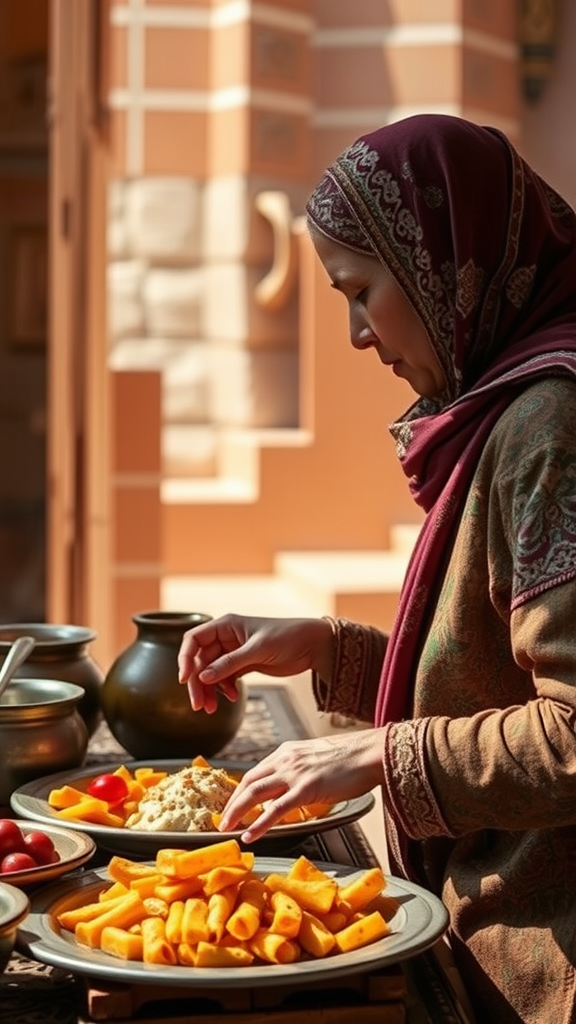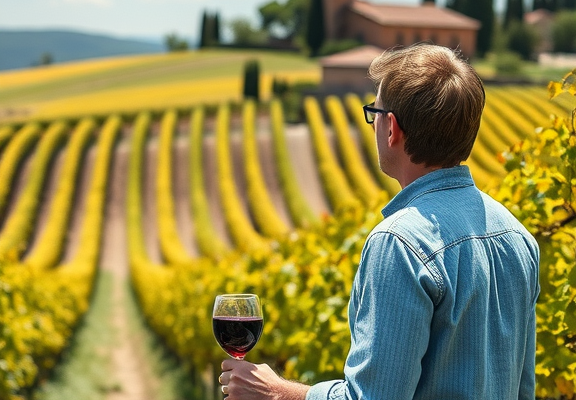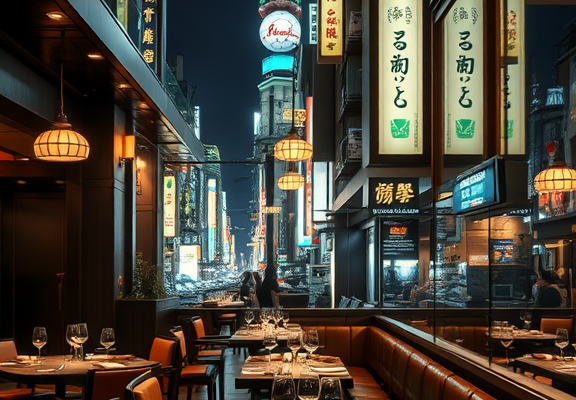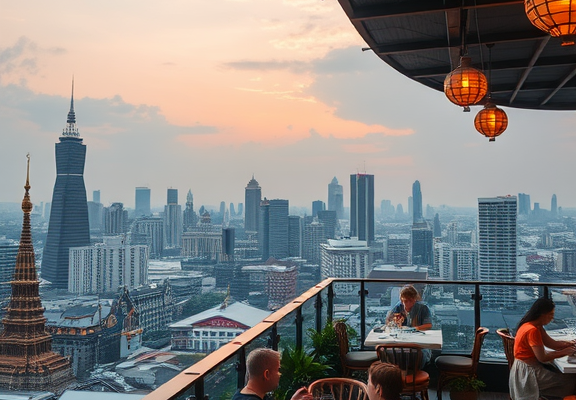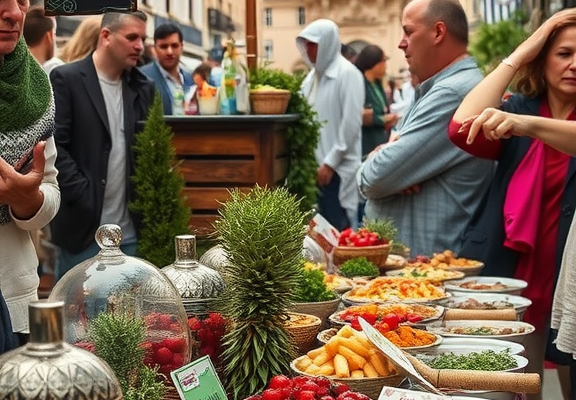Exploring the Rich Cultural Food Experiences in Morocco: Traditional Dishes and Their Significance
When you think of Morocco, the vivid colors of its markets and the sounds of its bustling streets may come to mind. Yet, it is the rich tapestry of cultural food experiences that truly represents the heart of this majestic North African nation. Moroccan cuisine is a flavorful blend, highly influenced by Berber, Arab, and Mediterranean cultures. Each dish tells a story, reflecting the country’s diverse history and traditions. If you’re looking to explore these culinary delights, you’re in for a treat.
Thank you for reading this post, don't forget to subscribe!Traditional Moroccan Dishes
To truly understand Moroccan culture, you must savor its traditional dishes. Here are some iconic meals that you can’t miss:
- Tagine: Named after the earthenware pot it is cooked in, tagine dishes consist of slow-cooked stews flavored with spices like cumin, coriander, and saffron. Popular variations include lamb with apricots, chicken with preserved lemons, and vegetarian tagines loaded with seasonal vegetables.
- Couscous: Often considered the king of Moroccan dishes, couscous is made from steamed semolina and is typically served with a rich vegetable stew or meat. It’s a staple for family gatherings and celebrations, representing unity and generosity.
- Bastilla: This savory-sweet pie combines layers of flaky pastry with spiced pigeon or chicken, almonds, and cinnamon. Traditionally served at weddings and festive occasions, it symbolizes luxury and hospitality.
- Harira: A traditional soup made with tomatoes, lentils, and chickpeas, harira is commonly enjoyed during Ramadan to break the fast. It’s packed with flavor and nutrition, making it a comforting dish for all.
- Mechoui: This whole roasted lamb dish is often prepared for large gatherings and special occasions. The meat is seasoned with aromatic spices and cooked until tender, embodying the essence of Moroccan feasting.
Significance of Spices
Moroccan food is renowned for its use of spices, which not only enhance flavor but also hold cultural significance. Here are some key spices you’ll find:
- Cumin: A staple in many dishes, cumin adds a warm and earthy flavor synonymous with Moroccan cooking.
- Coriander: Used both in seeds and fresh leaves, coriander brightens up a dish with its citrusy notes.
- Saffron: Known for its exquisite price, saffron adds a golden hue and a subtle sweetness to iconic dishes like tagine.
- Ginger: Often used in marinades as well as stews, ginger contributes a warm spice to Moroccan cuisine.
The Ritual of Food in Morocco
Dining in Morocco is more than just a meal—it is a ritual and a celebration of life. Meals are usually shared among family and friends, emphasizing community. When you are invited to someone’s home, it’s customary to eat with your right hand, using bread as a utensil to scoop up food. This practice signifies respect and connection.
Another unique aspect is the serving of mint tea, often referred to as “Moroccan whiskey.” This sweet, green tea infused with fresh mint leaves is more than just a beverage; it’s a symbol of hospitality and friendship. A typical tea ceremony involves pouring the tea from a height, showcasing the skill of the host and turning the experience into a theatrical performance.
Markets: A Feast for the Senses
Exploring local souks (markets) is an essential part of experiencing Moroccan food culture. These vibrant marketplaces are filled with colorful displays of spices, fruits, vegetables, and traditional cooking utensils. As you roam through the narrow alleyways, your senses can delight in the enticing aromas of grilling meats, the vibrant colors of spices, and the lively sounds of haggling merchants.
Don’t hesitate to engage with local vendors. They take pride in their products and are usually happy to share recipes or cooking tips. Sampling street food, such as spicy harira or crispy msemen (Moroccan pancakes), can also offer a taste of authentic, local flavors, making your culinary journey even more memorable.
Visiting Morocco offers more than just stunning landscapes; it opens your eyes to a world of rich cultural food experiences. Each meal, each spice, and each tradition contributes to the vibrant mosaic that is Moroccan cuisine. Its deep-rooted significance and history create a culinary adventure that’s sure to leave a lasting impression on anyone who ventures into its delightful embrace.
The Role of Culinary Festivals in Showcasing Morocco’s Diverse Food Culture
Morocco is a treasure trove of rich traditions, vibrant culture, and diverse food experiences. Culinary festivals held throughout the year play a vital role in showcasing this country’s gastronomic heritage. These events not only spotlight traditional dishes but also unite communities, celebrate local ingredients, and promote tourism. Whether you’re a foodie or just curious, experiencing a culinary festival in Morocco can be eye-opening and delicious.
One notable aspect of these festivals is the variety of regional cuisines that are represented. Each area of Morocco has its own culinary specialties, influenced by local resources and historical connections. For example, in the coastal city of Essaouira, you’ll find festivals featuring seafood dishes made with freshly caught fish and shellfish. In contrast, the inland regions might highlight hearty tagines, rich with meat and vegetables, slow-cooked to perfection. This showcase of local fare not only honors the unique tastes of each region but also encourages the preservation of traditional cooking methods.
During these events, you’ll often encounter a vibrant atmosphere filled with bustling stalls, live music, and cultural performances. Food stands line the streets, enticing visitors with the aroma of spices like cumin, coriander, and saffron. A culinary festival allows you to sample a variety of dishes, from street food favorites like brochettes (grilled meat skewers) to exquisite couscous made for special occasions. Participating gives you a chance to taste the very essence of Moroccan cuisine in its authentic form.
The educational component of these festivals cannot be overlooked. Many events feature cooking demonstrations, where skilled chefs share their culinary secrets and techniques. You can learn how to make a classic Moroccan dish, such as pastilla, a savory pie that combines sweet and savory flavors, or how to properly prepare the famed harira, a traditional soup served during Ramadan. These hands-on experiences empower attendees to bring a little piece of Morocco back to their own kitchens.
Here are some notable culinary festivals in Morocco that you might want to explore:
- Festival of World Sacred Music (Fez) – Although not exclusively a food festival, culinary experiences are intertwined with cultural performances celebrating spiritual and sacred music from around the globe.
- Marrakech Food Festival – This festival is devoted to Moroccan cuisine, featuring numerous food stalls, cooking competitions, and tastings of classic dishes made by local chefs.
- Gnaoua World Music Festival (Essaouira) – Another festival that beautifully merges music and culinary experiences, allowing visitors to enjoy traditional food while immersing themselves in rich musical heritage.
- Argan Oil Festival (Essaouira) – Here, the focus is on one of Morocco’s most essential ingredients, argan oil, highlighting its culinary uses and health benefits.
Another key element of Morocco’s culinary festivals is their commitment to sustainability and local sourcing. Many organizers emphasize the importance of using locally grown produce and ingredients. This not only helps the local economy but also reduces the carbon footprint associated with food transportation. As a visitor, you can feel good about supporting eco-friendly practices while enjoying delightful dishes made from the freshest ingredients.
In addition to the delicious food, culinary festivals in Morocco provide an opportunity for cultural exchange. Locals and visitors from various backgrounds come together to celebrate a shared passion for food, fostering connections and friendships. You might find yourself sitting at a communal table, sharing stories and laughter with fellow food lovers, or even joining a traditional dance in the middle of the lively atmosphere.
Ultimately, culinary festivals are more than just gatherings around food; they are expressions of Moroccan identity and creativity. By participating, you gain a deeper understanding of the traditions and cultural values that shape the nation’s culinary landscape. So when you’re planning your trip to Morocco, be sure to check the festival calendar. You might just discover a delicious adventure waiting for you.
Conclusion
Morocco’s culinary landscape is a vibrant tapestry woven from a rich history and a blend of cultural influences. The traditional dishes, from fragrant tagines to sweet pastilla, not only please the palate but also tell stories of ancient traditions and diverse communities. Each bite offers a glimpse into the country’s ethos, making every meal a journey through Morocco’s colorful past. The significance of these dishes is deeply rooted in the values of hospitality, family, and celebration, enriching the dining experience beyond mere sustenance.
Culinary festivals further enhance the awareness and appreciation of Morocco’s food culture. These events are not just a feast for the senses; they serve as a platform for local chefs and home cooks to showcase their creativity while preserving age-old cooking techniques. Visitors and locals alike come together, celebrating the diversity of flavors and the communal spirit that defines the Moroccan approach to food. The lively atmosphere, filled with music, dance, and the aroma of spices, creates an unforgettable cultural experience that leaves a lasting impact.
From exploring traditional dishes to enjoying the lively culinary festivals, indulging in the food of Morocco is about more than just taste; it’s a journey through time and culture. Engaging with Morocco’s food scene opens doors to understanding the soul of this beautiful country. Whether you are a seasoned foodie or a casual traveler, immersing yourself in these cultural food experiences will undoubtedly deepen your appreciation for Moroccan gastronomy.

